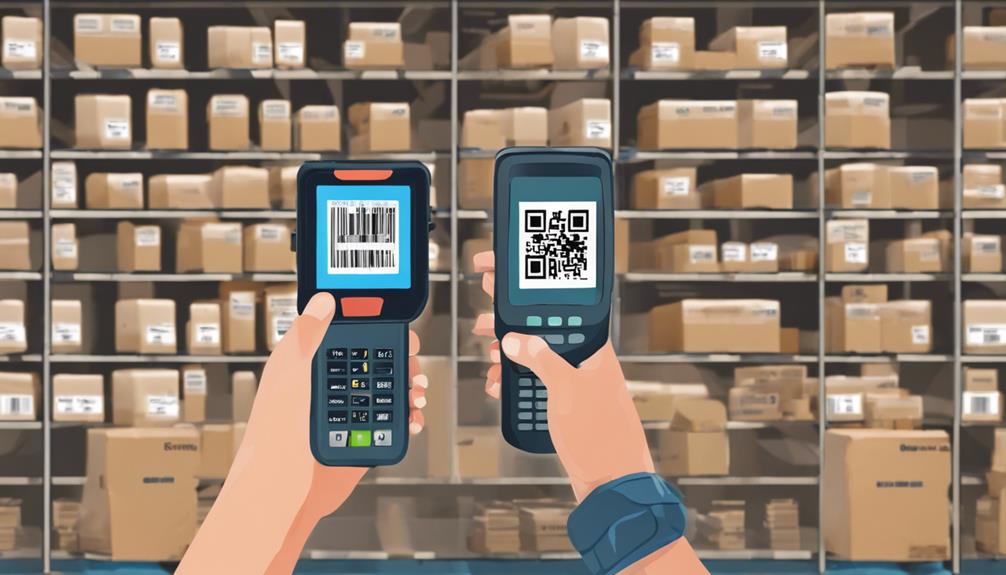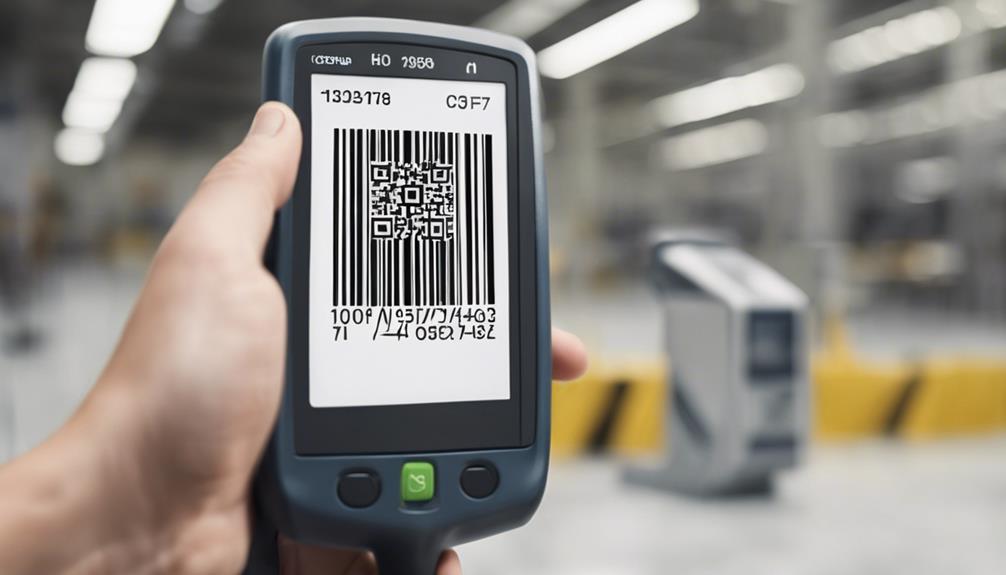In today’s fast-paced world, using barcode indexing is transforming different industries and has become a pivotal tool driving advancements in various sectors. From enhancing patient safety in healthcare to optimizing supply chain operations in logistics, barcode technology is reshaping industries at a fundamental level. The efficiency gains and cost-saving potentials are undeniable, but what specific impacts does barcode indexing have on retail, manufacturing, and legal services? Let’s explore how this transformative technology is revolutionizing processes and unlocking new potentials across different industries.
Role of Barcode Indexing in Healthcare
Barcode indexing plays a pivotal role in revolutionizing the healthcare industry by enhancing efficiency, accuracy, and patient safety. Through the implementation of barcode technology, healthcare facilities have experienced significant improvements in various aspects of patient care. One of the key benefits of barcode indexing is the improved efficiency it brings to processes such as medication administration and patient identification. By scanning barcodes, healthcare providers can quickly access crucial information, reducing the risk of errors and streamlining workflows.
Moreover, barcode indexing plays a crucial role in enhancing patient safety within healthcare settings. The use of barcodes ensures that patients receive the correct medications, treatments, and procedures, minimizing the potential for harmful mistakes. This technology also enables healthcare professionals to track patient information accurately, leading to better coordination of care and improved outcomes.
Barcode Indexing in Logistics
With the increasing demands for efficiency and accuracy in supply chain management, the utilization of advanced technologies has become paramount. Barcode indexing plays a crucial role in enhancing logistics operations by improving inventory management and overall supply chain efficiency.
In logistics, barcode indexing enables real-time tracking of inventory levels, reducing the likelihood of stockouts or overstock situations. By scanning barcodes, companies can accurately monitor the movement of goods from suppliers to warehouses to end customers, optimizing the entire supply chain process. This level of visibility not only streamlines operations but also minimizes the risk of errors in inventory management.
Furthermore, barcode indexing in logistics facilitates faster order processing and shipment tracking. With barcodes, each item can be uniquely identified and monitored throughout the fulfillment process, ensuring timely deliveries and customer satisfaction. This technology enhances the overall efficiency of logistics operations, making it an indispensable tool for modern supply chain management.
Benefits of Barcode Indexing in Retail
In retail, the utilization of barcode indexing revolutionizes operational efficiency and customer satisfaction through precise inventory management and streamlined checkout processes. By implementing barcode technology, retailers experience increased efficiency in tracking stock levels, identifying popular items, and monitoring product movement. This enhanced inventory management leads to reduced instances of stockouts and overstocking, optimizing shelf availability and ultimately boosting sales. Barcode indexing also facilitates quicker and more accurate checkout processes, as scanning barcodes eliminates the need for manual entry of product information. This not only reduces human error but also enhances the overall shopping experience for customers by minimizing wait times at the cash register. Furthermore, barcode indexing enables retailers to easily conduct inventory audits, track product expiration dates, and analyze sales trends. Overall, the adoption of barcode technology in retail significantly enhances operational productivity and customer satisfaction through improved inventory management practices.
Impact of Barcode Indexing on Manufacturing
The integration of barcode indexing technology in the manufacturing sector has ushered in a new era of efficiency and accuracy. By utilizing barcode systems, manufacturing processes have significantly improved efficiency by streamlining inventory management, tracking products along the production line, and automating data entry tasks. These advancements have led to a reduction in errors, as manual data entry is prone to mistakes that can be costly in manufacturing operations.
Barcode indexing enables real-time monitoring of inventory levels, ensuring that materials are replenished promptly to avoid production delays. It also facilitates precise tracking of products throughout the assembly process, reducing the risk of errors and ensuring that the final products meet quality standards. By scanning barcodes at various stages of production, manufacturers can easily identify bottlenecks and optimize workflows for better efficiency.
Barcode Indexing for Legal Services
The utilization of barcode indexing technology is not confined solely to the manufacturing industry; it has also found significant applications in the realm of legal services. In legal settings, barcode indexing plays a crucial role in enhancing document management and case tracking processes. By assigning unique barcodes to each document, legal professionals can efficiently organize, store, and retrieve vast amounts of information with ease. This streamlined approach to document management ensures that critical files are easily accessible when needed, leading to improved productivity and reduced chances of errors or misplacements.
Moreover, barcode indexing facilitates efficient case tracking by enabling legal teams to quickly locate specific files related to ongoing cases. This expedites the research process, aids in maintaining case timelines, and enhances the overall organization of legal proceedings. With the integration of barcode technology, legal services can optimize their workflow, improve accuracy, and provide more effective representation for their clients.
Frequently Asked Questions
How Does Barcode Indexing Enhance Patient Privacy in Healthcare?
To enhance patient privacy in healthcare, barcode indexing improves efficiency by streamlining data access and enhances accuracy in identifying patients and their medical information. This method ensures secure and precise handling of sensitive data.
Can Barcode Indexing Reduce Carbon Footprint in Logistics?
By implementing barcode indexing, you can reduce waste and increase efficiency in logistics operations. This technology streamlines inventory management, minimizes errors, and optimizes supply chain processes, ultimately reducing the carbon footprint associated with transportation and packaging.
What Are the Security Risks Associated With Barcode Indexing in Retail?
When it comes to security risks in retail barcode indexing, data protection is crucial. Ensuring systems are fortified against breaches is paramount for fraud prevention. Vigilance and robust protocols are essential in safeguarding sensitive information.
Does Barcode Indexing Improve Workplace Safety in Manufacturing?
Barcode indexing enhances workplace safety in manufacturing by streamlining inventory tracking and boosting production efficiency. It ensures accurate material handling, reduces human error, and enables quick identification of products, contributing to a safer and more productive work environment.
How Does Barcode Indexing Streamline Case Management in Legal Services?
Barcode indexing revolutionizes legal services by enhancing data organization and efficiency. It streamlines case management through precise document tracking, ensuring accuracy. Embrace this transformative technology to optimize workflows and elevate your legal practice to new heights.



